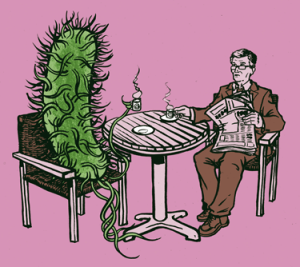The coffee-machine bacteriome
 From a new paper in Nature, Scientific Reports:
From a new paper in Nature, Scientific Reports:
Microbial communities are ubiquitous in both natural and artificial environments. However, microbial diversity is usually reduced under strong selection pressures, such as those present in habitats rich in recalcitrant or toxic compounds displaying antimicrobial properties. Caffeine is a natural alkaloid present in coffee, tea and soft drinks with well-known antibacterial properties. Here we present the first systematic analysis of coffee machine-associated bacteria. We sampled the coffee waste reservoir of ten different Nespresso machines and conducted a dynamic monitoring of the colonization process in a new machine. Our results reveal the existence of a varied bacterial community in all the machines sampled, and a rapid colonisation process of the coffee leach. The community developed from a pioneering pool of enterobacteria and other opportunistic taxa to a mature but still highly variable microbiome rich in coffee-adapted bacteria. The bacterial communities described here, for the first time, are potential drivers of biotechnologically relevant processes including decaffeination and bioremediation.
The authors note:
The presence of bacterial genera with pathogenic properties and the fast recovery of the communities after rinsing the capsule container, strongly suggest the need for frequent maintenance of the capsule container of these machines.
In related news from a few years ago, scientists in the US have genetically modified an E.coli strain so that it is ‘addicted’ to caffeine. Yes, but will E. coli prove theorems?
Hat tip: Paul Kedrosky.